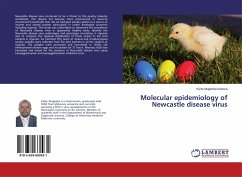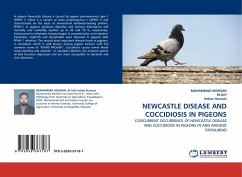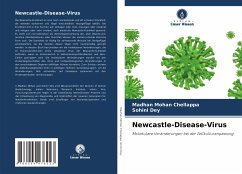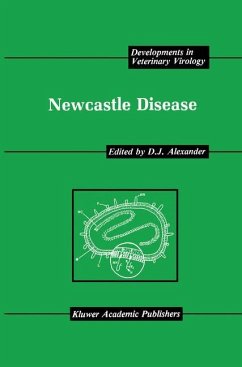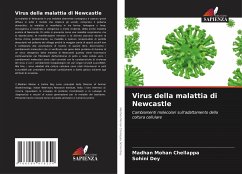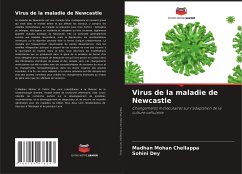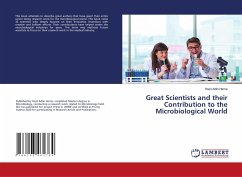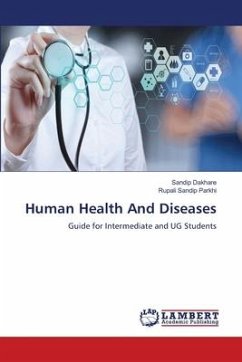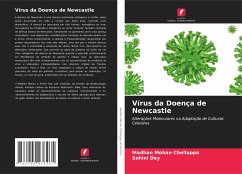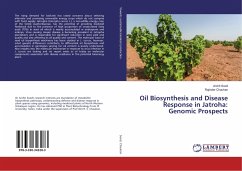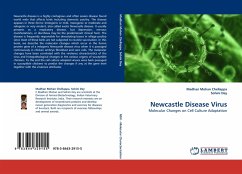
Newcastle Disease Virus
Molecular Changes on Cell Culture Adaptation
Versandkostenfrei!
Versandfertig in 6-10 Tagen
39,99 €
inkl. MwSt.

PAYBACK Punkte
20 °P sammeln!
Newcastle disease is a highly contagious and often severe disease found world wide that affects birds including domestic poultry. The disease appears in three forms: lentogenic or mild, mesogenic or moderate and velogenic or very virulent, also called exotic Newcastle disease. It usually presents as a respiratory disease, but depression, nervous manifestations, or diarrhoea may be the predominant clinical form. The disease is frequently responsible for devastating losses in village poultry since most of these birds are not subjected to routine vaccination. In this book, we describe the molecul...
Newcastle disease is a highly contagious and often severe disease found world wide that affects birds including domestic poultry. The disease appears in three forms: lentogenic or mild, mesogenic or moderate and velogenic or very virulent, also called exotic Newcastle disease. It usually presents as a respiratory disease, but depression, nervous manifestations, or diarrhoea may be the predominant clinical form. The disease is frequently responsible for devastating losses in village poultry since most of these birds are not subjected to routine vaccination. In this book, we describe the molecular changes which occur in the fusion protein gene of a velogenic Newcastle disease virus when it is passaged continuously in chicken embryo fibroblast and vero cells. The molecular changes have been correlated with the virulence characteristics of the virus and histopathological changes in the various organs of susceptible chickens. To the end the cell culture adapted viruses were back passaged in susceptible chickens to predict the changes if any at the gene level together with the virulence attributes.



